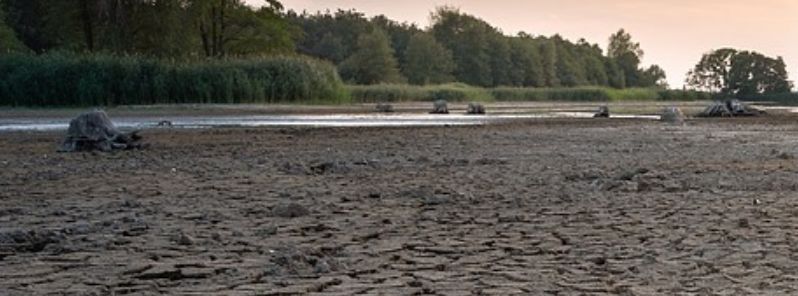Drought hits Barbados following driest year in 70 years

Drought conditions are expected to persist in Barbados into the first seven months of 2020, with 2019 being the driest year on record in some 70 years. The Barbados Meteorological Services at the Grantley Adams International Airport recorded 736.5 mm (29 inches) of rainfall– the lowest since 1942, while the Caribbean Institute of Meteorology and Hydrology (CIMH) at Husbands, St. James recorded 804.5 mm (31.7 inches)– the lowest since 1969.
CIMH advised authorities to carry out measures to alleviate fallout from a dry period which is expected to last possibly to the end of September 2020.
Following the revelation of low figures during a press conference at CIMH's headquarters, general manager of the Barbados Water Authority Keithroy Halliday and Acting Chief Agricultural Officer Charleston Lucas affirmed that programs have begun to deal with the crisis ahead. The dry season usually starts in May.
The Barbados Meteorological Services recorded 736.5 mm (29 inches)– 58 percent of average yearly rain and lowest in 77 years, while CIMH recorded 804.5 mm (31.7 inches)– 63 percent of average conditions and lowest in 50 years. Prior to 2019's record, the driest year was 1947.
According to CIMH’s chief of Applied Meteorology and Climatology Adrian Trotman, last year's exceptionally dry conditions followed on from the same situation between 2014 to 2016 but worsened in 2019 particularly in the last six months.
In addition, Climatologist Dr. Cedric Van Meerbeeck said that although February to April is often the driest months, the impact from 2019's drought will be felt more significantly during this time.
"Having been in this drought for so long, what we expect is that the impact on the ground is going to slowly start increasing. So you are talking about plants withering and also about fire risk increasing, and about crop yields being affected at some stage," he noted, adding that models indicate it is going to be "very dry."
Van Meerbeeck also said that the situation may be aggravated with a probable late start to the wet season.
"We need to make sure that we monitor our resources and we need to make sure that we conserve as much as possible because by the end of May we will expect to see quite an impact on our water levels."
On the other hand, meteorologist Sabu Best advised the public not to panic, saying now is the time to prepare.
"It is not Armageddon. It has happened before and we can pull together and get through this– through the resources of the BWA with their messages to the public and what to do; through the Ministry of Agriculture advising the farmers of the plots they can plant beforehand," he said.
"That’s the way we can get through this."
Barbados Water Authority's director of engineering Charles Leslie also assured that preparation is already underway.
"We have done some upgrades at our desalination plant at Spring Garden, we have installed a number of booster stations — the last we installed was at Trents, St. James. We have another project going now on the eastern side of the island –the Vineyard project, where we are going to be bringing water from Groves in St Philip through Mount Pleasant into the Golden Ridge area. So what we have been doing is preparing for this," he explained.


Featured image credit: Seaq68/Pixabay

Commenting rules and guidelines
We value the thoughts and opinions of our readers and welcome healthy discussions on our website. In order to maintain a respectful and positive community, we ask that all commenters follow these rules.